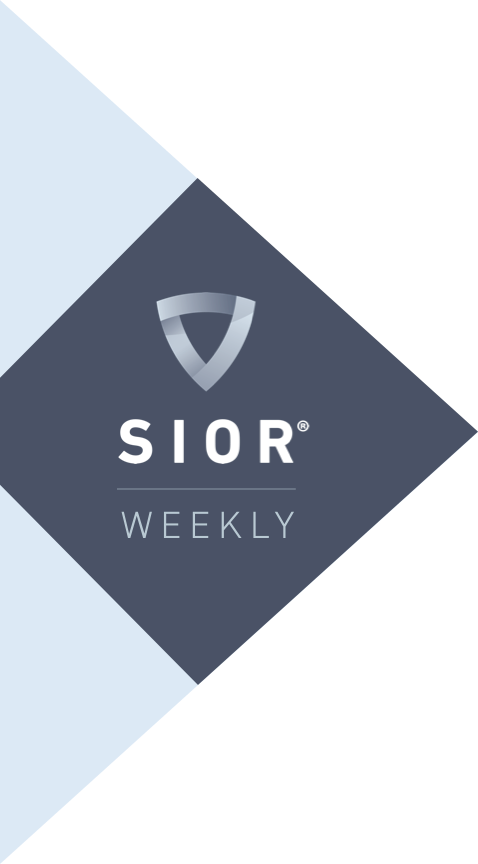Persistence. Confidence. Competitiveness. A passion for both detail and client service. These are just some of the traits that go into great leadership, regardless of gender.
Yet broadly speaking, there is a telling lack of gender inclusion in business, and a persistent bias that still remains. In fact, a recent JLL report reveals that 85% of Fortune 500 CEOs are men. Overseas it’s even worse, with that number soaring to 96% in Asia Pacific. And, of course, the pay gap remains, with women receiving $8 for every $10 a man earns.
Clearly, the need for Diversity, Equity and Inclusion (DEI) is a growing subject in America’s boardrooms. In fact, JLL puts the U.S. spend on DEI at $15.4 billion by 2026–double the 2020 expenditure. But the question remains: Where is that money being spent? Diversity is one issue. Inclusion and equity are quite another, especially as it pertains to leadership positions in brokerage.
“It’s not changing quickly enough,” says Alison Beddard, a Cushman & Wakefield managing principal, in a recent SIOR webinar on the subject. “Especially in the brokerage ranks, and especially in compensation.”
Accelerating that journey takes two critical elements: A new mindset on the part of the female broker and, as MacKay indicated, an awareness by those currently in the seats of power.
PERSONAL BEST
On the first score, as CBRE Executive VP Patricia Loveall, SIOR, and this year’s SIOR Global President, recently stated in an SIOR webinar: “Women need a voice like men.” But this doesn’t mean they need to act like men, she explains later in a follow-up interview. Rather, they need to develop a sort of internal swagger, a swagger that allows them to leverage all it means to be a woman in business with an unapologetic acceptance that they have earned their position. “Women need to recognize that they deserve a seat at the table.”
Part of that is shedding their own fears and preconceptions. “I was scared to death of commission work when I started out as a broker,” says Beddard. “I was trying to get my own voice and establish that confidence. It did take a while, and I wish it came sooner.”
It is a challenge, especially given traditional cultural roles and stereotypes still needed to be overcome. “Our society places tremendous responsibility on women as mothers,” states webinar participant and SIOR President-Elect David Lockwood, CCIM, SIOR. “How does she get involved and put herself in a leadership role when there will be times [that society expects her] to step back and [put in fewer] than the 60 hours a week brokers put in?”
While traditional family roles continue to evolve, with men and women working towards more equal responsibilities, the perceptions of those roles still haven’t quite made it to all boardrooms. The EVP and South Carolina COO for Colliers goes on to say that one of the many steps in this journey is for the industry to recognize it and have an open dialogue.
This goes as well for women themselves. “You have to find a way to balance family and business,” Loveall added in the interview. “Making sure you’re home for dinner might also mean going back to the laptop after the kids are in bed.” Happily, she adds, corporate structures on issues such as maternity and paternity leave are loosening to create more of a family partnership and mutually supportive environment.
But there is still work to be done to change perceptions that women won’t have the capacity to lead if they are working mothers. There is no such thing as a ‘working father’ in our current culture. Overcoming these challenges requires unified awareness and decision-making. It requires us to lean in and be a strong voice for our companies and communities and continue the conversations to influence change in the industry.
IT TAKES A VILLAGE
As Lockwood expressed during SIOR’s webinar, “diversity doesn’t just happen…We all have to focus on it,” he goes on, “and we all have to be encouraging. Our brokerage ranks need to look like the boardrooms of the companies we represent. [But] we’re not there yet.” (It is important to note here that Lockwood is referencing not just women alone, but rather under-represented groups of all sorts.)
And therein lies the second critical element: Leadership support. Early in Beddard’s career, she was nominated for the CREW Network board. But for that, she needed “alignment” with management to ensure their blessing.
Her boss provided that blessing, along with some sage advice. He told her to visit every Cushman office when she had a CREW speaking engagement in order to maximize her network and her opportunities. Yes, she admitted, she was scared. Regardless, it is imperative, she added, that women in this business “step up and step out.”
Aiding that initiative is the growing number of entry-level brokerage programs that subsidize up-and-comers with salaries rather than a commission-only rewards program. And that too demands a break from traditional thinking. As Lockwood explains: “We can’t be afraid of change. Otherwise, our industry will fall farther behind. It’s up to us to be bold and take some risks.”
Seizing opportunity also means enrolling in professional organizations. But joining isn’t enough. “If you’re going to join an organization, you have to be involved,” adds Jill Rasmussen, SIOR, principal at Davis Healthcare Real Estate in Minneapolis. “You have to meet people and network.” It is the only way to leverage membership into ongoing learning and the creation of opportunities.
And while there are many membership options, SIOR has been making great strides in the field of DEI, with an ever-growing base of female members, including a larger percentage interested in leadership roles. Since 2021, SIOR has seen a 17% increase in female membership. Six women currently sit on its Board of Directors, including Loveall as this year’s global president, and board member Saadia Sheikh, SIOR, who was recently elected SIOR Vice President, making her the association’s youngest female VP when she takes office in the fall. It’s an engaged audience as well, with 50% of that female membership in attendance at recent SIOR conferences. SIOR has also been enhancing its programming to match the interest, with events such as the recent Women’s Networking Breakfast held during SIOR’s Spring Event in Montreal, featuring the Honorable Mary Beth Long, foreign policy expert and the first female civilian four-star military equivalent in the history of the Pentagon, as keynote speaker.
In our interview, Loveall cited Sheikh as just one example of the direction SIOR is headed: “The new members we’ve brought in over the past 18 months are creating a whole new look, including more women and young people and more ethnic diversity. And as we become more diverse, as an association and an industry, more people will rise to levels they hadn’t before. They’ll realize they deserve a seat at the table.”
Leadership doesn’t have a specific gender, role, geography, or ethnicity, but rather it embodies the best characteristics of a person who can influence and motivate in great ways. A successful DEI blueprint involves seeking out leaders of all types and providing equal opportunities for the best to shine.
For Loveall, SIOR helped her career path because it pushed her out of her comfort zone and provided new avenues for growth. She credits 1995 President Jerome Mathews with much of that incentive. “I went to the school of Jerry Mathews.” He would give her advice such as the importance of attending meetings and sitting with people you don’t know in order to expand both your network and your industry knowledge. “He helped me gain that confidence and gave me the support I needed.”
Loveall tells a story in the webinar of one way she helped break the traditional perception of roles for women. She took her daughter to an SIOR conference. “She got to see how I own what I do,” she says. “She saw a different aspect of me.” She also saw the willingness of SIOR members, mostly all competitors, to help each other. “It’s an environment where we can all lean on each other in order to get better at what we do.”
Loveall says that such support is a hallmark of SIOR.






